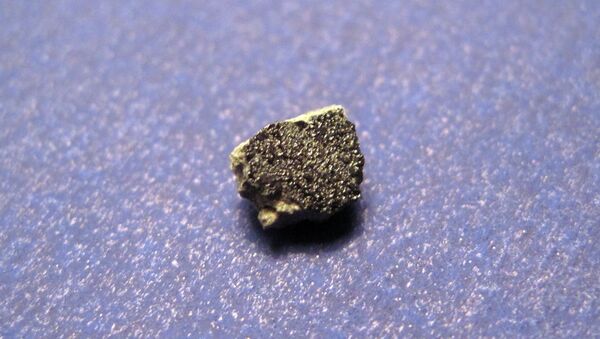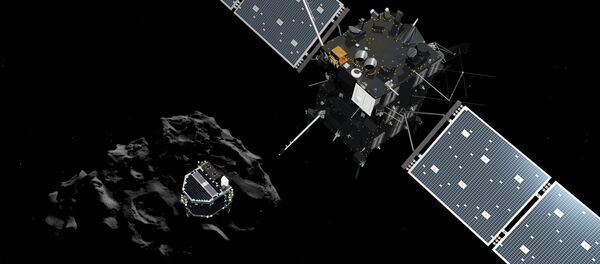MOSCOW, December 3 (Sputnik) — Chinese scientists discovered that a meteorite of Martian origin that hit Earth in Morocco in summer 2011, contains signs of water and organic carbon combinations, which may be evidence of extraterrestrial life dating 700,000 years back in time.
The researchers assumed the organic matter could still have appeared on the space guest after it landed on Earth. But the recent tests have ultimately proven it is extraterrestrial nature.
"We cannot and do not want to entirely exclude the possibility that organic carbon within Tissint may be of abiotic origin," Professor Yangting Lin of Chinese Academy of Sciences in Beijing wrote, suggesting the organic matter may still be physical, not biological, in origin. However, this is very unlikely.
The scientists point out the organic matter is extraterrestrial in origin and has four unusual features. Firstly, the meteorite did not spend a lot of time on Earth outside of the scientists’ control. Secondly, the organic matter was sealed inside the rock, under its glassy surface, created by the high temperatures only possible at atmospheric entry. Thirdly, some of these carbon compositions hardened into diamond, which is also only possible in natural conditions outside of Earth. Fourthly, the carbon-containing matter also bears a lot of deuterium, found in Martian soil.





